-
 Bitcoin
Bitcoin $107,247.2038
-0.18% -
 Ethereum
Ethereum $2,424.7947
0.34% -
 Tether USDt
Tether USDt $1.0003
-0.02% -
 XRP
XRP $2.1171
-3.33% -
 BNB
BNB $645.6618
0.06% -
 Solana
Solana $141.5898
-1.32% -
 USDC
USDC $0.9998
0.00% -
 TRON
TRON $0.2710
-0.41% -
 Dogecoin
Dogecoin $0.1602
-2.99% -
 Cardano
Cardano $0.5553
-2.28% -
 Hyperliquid
Hyperliquid $36.3019
-2.42% -
 Bitcoin Cash
Bitcoin Cash $491.7212
2.04% -
 Chainlink
Chainlink $13.0810
-0.23% -
 Sui
Sui $2.6080
-5.06% -
 UNUS SED LEO
UNUS SED LEO $9.0040
-0.05% -
 Stellar
Stellar $0.2350
-3.06% -
 Avalanche
Avalanche $17.2294
-2.31% -
 Toncoin
Toncoin $2.8075
-1.05% -
 Shiba Inu
Shiba Inu $0.0...01121
-3.43% -
 Litecoin
Litecoin $84.2215
-0.32% -
 Hedera
Hedera $0.1429
-4.88% -
 Monero
Monero $312.2199
-0.90% -
 Dai
Dai $0.9997
-0.01% -
 Ethena USDe
Ethena USDe $0.9999
-0.02% -
 Polkadot
Polkadot $3.2973
-2.60% -
 Bitget Token
Bitget Token $4.4742
3.12% -
 Pi
Pi $0.5631
-10.10% -
 Uniswap
Uniswap $6.7817
-2.06% -
 Pepe
Pepe $0.0...09252
-3.74% -
 Aave
Aave $251.3830
-2.24%
What is a wallet mnemonic? Wallet mnemonic backup method
A wallet mnemonic, or recovery phrase, is a secure backup for cryptocurrency wallets, allowing users to restore access to their funds if the wallet is lost or damaged.
Jun 14, 2025 at 11:01 pm
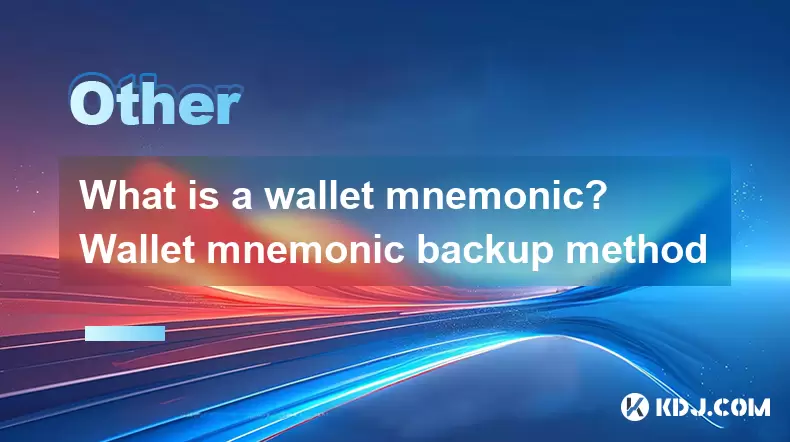
Understanding the Concept of a Wallet Mnemonic
A wallet mnemonic, commonly referred to as a recovery phrase or seed phrase, is a set of easy-to-remember words generated by a cryptocurrency wallet during its initial setup. These words are derived from a cryptographic algorithm and serve as a backup mechanism for restoring access to your digital assets in case your wallet becomes inaccessible. Typically, this phrase consists of 12, 18, or 24 words arranged in a specific order.
It's important to understand that the mnemonic phrase acts as a human-readable version of a private key. Unlike complex hexadecimal codes, these phrases are designed to be written down and stored securely. The underlying technology behind this system follows the BIP39 standard, which ensures compatibility across various wallets while maintaining a high level of security.
Why Mnemonic Phrases Are Critical for Wallet Security
The mnemonic phrase plays a central role in securing your cryptocurrency holdings. If you lose access to your wallet—due to device failure, theft, or accidental deletion—the recovery phrase allows you to regain control over your funds on any compatible wallet platform. Without it, permanent loss of assets is highly likely.
Moreover, the phrase must remain confidential at all times. Anyone who gains access to your mnemonic can take full control of your wallet and transfer your cryptocurrencies without your permission. This makes physical and digital protection of the phrase essential. It should never be shared online, saved in cloud storage, or transmitted through email or messaging apps.
How to Generate a Wallet Mnemonic Securely
During wallet creation, most software and hardware wallets automatically generate a 12-word mnemonic phrase. This process occurs offline within the wallet application or device, ensuring that no third party intercepts the seed. Here’s how it typically works:
- When setting up a new wallet, the user is prompted to record the recovery phrase.
- The phrase appears on the screen in a numbered list format.
- Users are instructed to write it down in the exact order shown.
- Some wallets may ask users to re-enter the words to confirm accuracy.
It's crucial to perform this step in a secure environment. Using a trusted wallet provider like Ledger, Trezor, or Trust Wallet ensures that the generation process adheres to industry standards and minimizes risks of tampering or malware interference.
Best Practices for Backing Up Your Mnemonic Phrase
Proper backup of your wallet mnemonic is vital for long-term asset security. Here are recommended steps to ensure safekeeping:
- Write it down manually: Use pen and paper to record the phrase. Avoid digital copies unless using encrypted offline storage.
- Store it securely: Keep the written copy in a fireproof and waterproof safe or safety deposit box.
- Avoid multiple copies: Creating multiple backups increases exposure risk. One well-secured copy is often sufficient.
- Use metal backup tools: Specialized steel plates designed to store recovery phrases offer durability against fire and corrosion.
- Keep it private: Do not share the location or existence of the backup with anyone.
Each method has its pros and cons. For instance, physical writing prevents hacking but exposes the phrase to physical damage. Conversely, encrypted offline storage offers convenience but requires technical expertise to manage safely.
What to Do if You Lose Your Mnemonic Phrase
Losing your wallet mnemonic is one of the most serious issues a crypto holder can face. Unfortunately, there is no centralized authority to recover lost phrases. Once gone, access to the associated wallet and its contents is permanently lost.
If you suspect your phrase has been compromised or misplaced, consider the following actions:
- Immediately move funds to a new wallet with a fresh mnemonic.
- Investigate whether you have any other secure backups stored elsewhere.
- If the phrase was digitally stored, check encrypted drives or old devices for remnants.
- Contact wallet support to see if they offer any recovery options (though most do not due to security policies).
This highlights the importance of having a single, reliable backup plan in place before any incident occurs.
Common Mistakes to Avoid When Handling Recovery Phrases
Many users unknowingly expose their mnemonic phrases to unnecessary risks. Common mistakes include:
- Taking screenshots or photos of the phrase and storing them on smartphones or computers.
- Saving the phrase in unencrypted text files or cloud services like Google Drive or iCloud.
- Reusing the same mnemonic across multiple wallets or platforms.
- Storing the phrase near the device where the wallet is installed.
- Sharing the phrase with others under the assumption it's harmless.
These errors significantly increase the likelihood of theft or irreversible loss. Always treat your wallet mnemonic with the same care as you would cash or valuable documents.
Frequently Asked Questions
Q: Can I change my wallet mnemonic after it’s created?
A: No, the mnemonic phrase cannot be changed once generated. To update it, you must create a new wallet and transfer your funds to it.
Q: Is it safe to store my mnemonic phrase in a password manager?
A: Yes, storing it in an encrypted password manager is safer than keeping it in plain text. However, ensure the manager itself is protected by a strong master password and two-factor authentication.
Q: What happens if I enter my mnemonic in the wrong order?
A: Entering the words out of sequence will result in a different wallet address. This means you won’t be able to recover your original funds.
Q: Can I use someone else’s mnemonic to access their wallet?
A: Yes, knowing someone’s mnemonic phrase gives full access to their wallet. This underscores why you should never disclose or store your phrase insecurely.
Disclaimer:info@kdj.com
The information provided is not trading advice. kdj.com does not assume any responsibility for any investments made based on the information provided in this article. Cryptocurrencies are highly volatile and it is highly recommended that you invest with caution after thorough research!
If you believe that the content used on this website infringes your copyright, please contact us immediately (info@kdj.com) and we will delete it promptly.
- Crypto Presales in 2025: MAGACOIN FINANCE and the Hunt for New Coins
- 2025-06-27 04:50:12
- Senate, Bitcoin, and the Reserve: What's the Deal?
- 2025-06-27 04:30:12
- Bitcoin, Collateral, and Mortgages: A New York Perspective on Crypto's Housing Play
- 2025-06-27 04:30:12
- Trump, Crypto, and Stablecoins: A New York Minute on WLF's Bold Moves
- 2025-06-27 04:57:13
- Crypto Liquidity, Centralized Exchanges, and 2025 Trends: What's the Deal?
- 2025-06-27 04:35:12
- Meme Coins in 2025: Long-Term Growth or Just a Passing Fad?
- 2025-06-27 05:02:09
Related knowledge
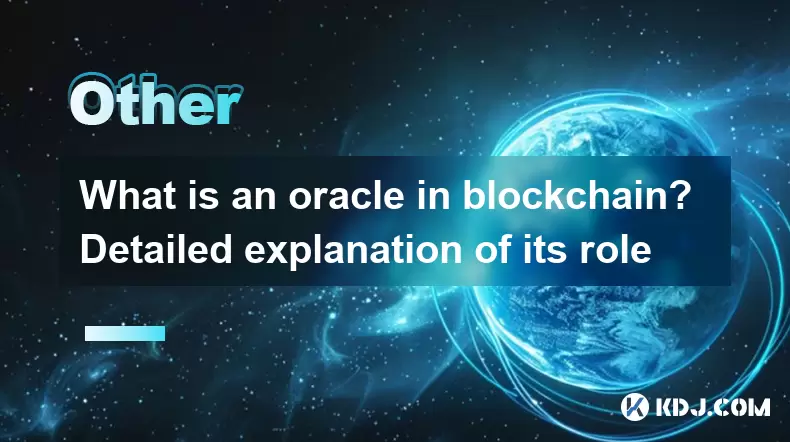
What is an oracle in blockchain? Detailed explanation of its role
Jun 21,2025 at 06:14am
Understanding the Concept of an Oracle in BlockchainIn the realm of blockchain technology, an oracle is a trusted third-party service that connects smart contracts with real-world data. Smart contracts are self-executing agreements where the terms are written directly into code and run on a blockchain network. However, these contracts operate in a close...
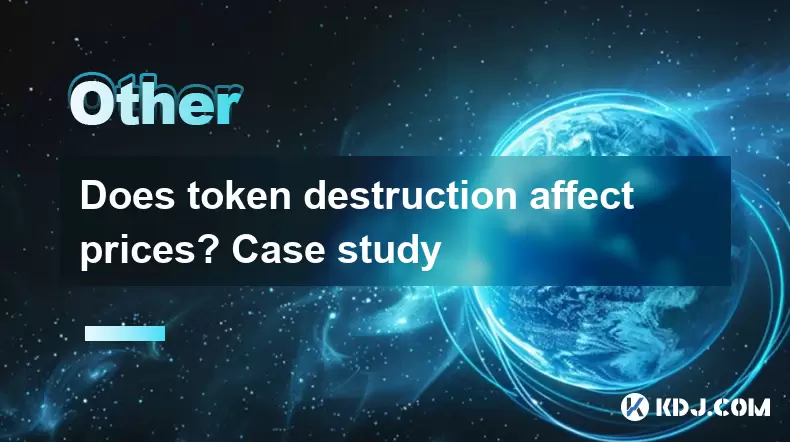
Does token destruction affect prices? Case study
Jun 22,2025 at 02:50am
Understanding Token DestructionToken destruction, commonly referred to as token burning, is a process where a portion of cryptocurrency tokens is permanently removed from circulation. This is typically done by sending the tokens to a non-recoverable wallet address, effectively reducing the total supply. Projects may implement token burns to create scarc...
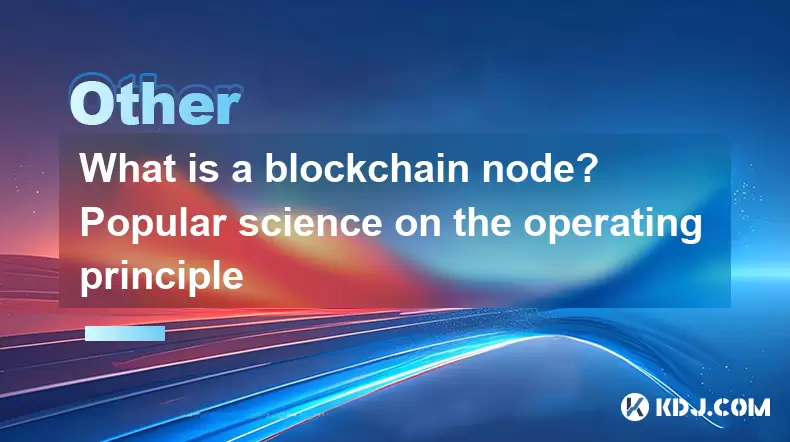
What is a blockchain node? Popular science on the operating principle
Jun 22,2025 at 11:00pm
Understanding the Basics of a Blockchain NodeA blockchain node is essentially a computer connected to a blockchain network that participates in validating and storing transaction data. Each node plays a critical role in maintaining the integrity, transparency, and decentralization of the blockchain. Unlike traditional centralized systems where a single ...
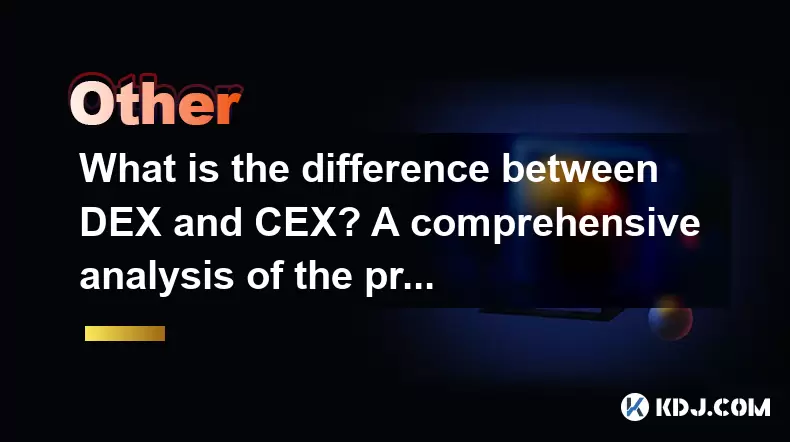
What is the difference between DEX and CEX? A comprehensive analysis of the pros and cons
Jun 24,2025 at 09:42am
What is a DEX (Decentralized Exchange)?A DEX, or Decentralized Exchange, operates without a central authority. Unlike traditional platforms, DEXs allow users to trade cryptocurrencies directly from their wallets. These exchanges rely on smart contracts to facilitate transactions, ensuring that no intermediary holds user funds. One of the most notable fe...
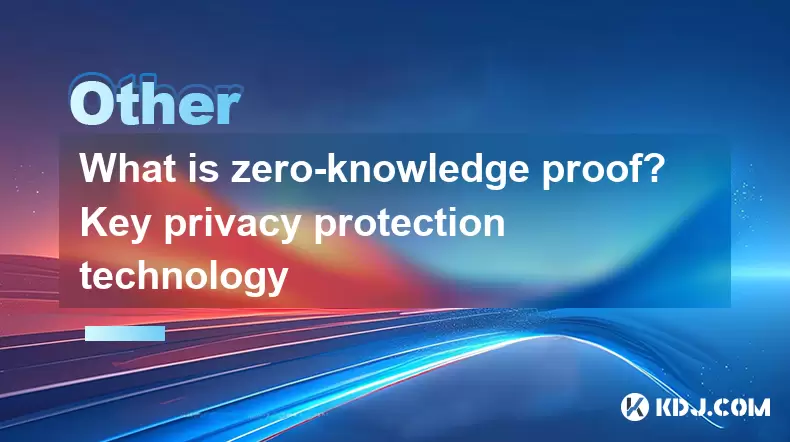
What is zero-knowledge proof? Key privacy protection technology
Jun 22,2025 at 07:29pm
Understanding Zero-Knowledge ProofZero-knowledge proof (ZKP) is a cryptographic method that allows one party to prove to another party that they know a value or information without revealing the actual content of that information. This concept is particularly important in the realm of privacy protection technologies, especially within blockchain and cry...
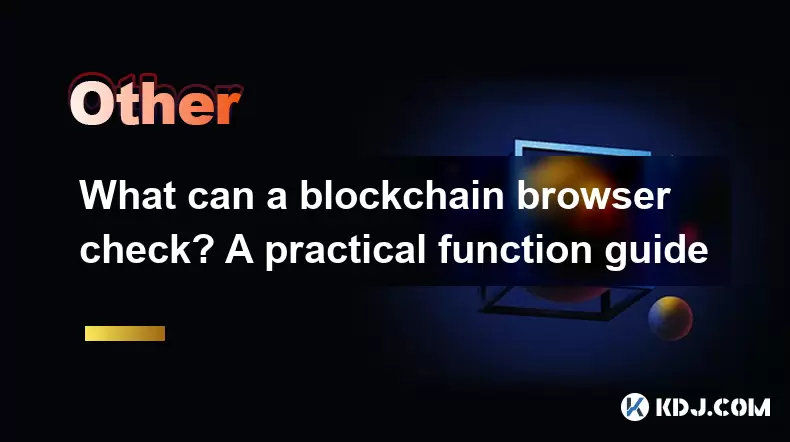
What can a blockchain browser check? A practical function guide
Jun 20,2025 at 07:35pm
Understanding the Role of a Blockchain BrowserA blockchain browser serves as a powerful tool for anyone interacting with blockchain networks. It allows users to explore, verify, and analyze data stored on the blockchain in real time. Unlike traditional ledgers or databases that are centralized, blockchains are decentralized and publicly accessible. This...

What is an oracle in blockchain? Detailed explanation of its role
Jun 21,2025 at 06:14am
Understanding the Concept of an Oracle in BlockchainIn the realm of blockchain technology, an oracle is a trusted third-party service that connects smart contracts with real-world data. Smart contracts are self-executing agreements where the terms are written directly into code and run on a blockchain network. However, these contracts operate in a close...

Does token destruction affect prices? Case study
Jun 22,2025 at 02:50am
Understanding Token DestructionToken destruction, commonly referred to as token burning, is a process where a portion of cryptocurrency tokens is permanently removed from circulation. This is typically done by sending the tokens to a non-recoverable wallet address, effectively reducing the total supply. Projects may implement token burns to create scarc...

What is a blockchain node? Popular science on the operating principle
Jun 22,2025 at 11:00pm
Understanding the Basics of a Blockchain NodeA blockchain node is essentially a computer connected to a blockchain network that participates in validating and storing transaction data. Each node plays a critical role in maintaining the integrity, transparency, and decentralization of the blockchain. Unlike traditional centralized systems where a single ...

What is the difference between DEX and CEX? A comprehensive analysis of the pros and cons
Jun 24,2025 at 09:42am
What is a DEX (Decentralized Exchange)?A DEX, or Decentralized Exchange, operates without a central authority. Unlike traditional platforms, DEXs allow users to trade cryptocurrencies directly from their wallets. These exchanges rely on smart contracts to facilitate transactions, ensuring that no intermediary holds user funds. One of the most notable fe...

What is zero-knowledge proof? Key privacy protection technology
Jun 22,2025 at 07:29pm
Understanding Zero-Knowledge ProofZero-knowledge proof (ZKP) is a cryptographic method that allows one party to prove to another party that they know a value or information without revealing the actual content of that information. This concept is particularly important in the realm of privacy protection technologies, especially within blockchain and cry...

What can a blockchain browser check? A practical function guide
Jun 20,2025 at 07:35pm
Understanding the Role of a Blockchain BrowserA blockchain browser serves as a powerful tool for anyone interacting with blockchain networks. It allows users to explore, verify, and analyze data stored on the blockchain in real time. Unlike traditional ledgers or databases that are centralized, blockchains are decentralized and publicly accessible. This...
See all articles
























































































